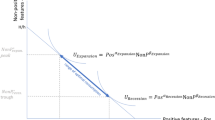“Perhaps in this neglected spot is laid/Some heart once pregnant with celestial fire,/Hands, that the rod of empire might have sway'd,/Or wak'd to extasy the living lyre.” Thomas Gray,Elegy Written in a Country Church Yard “‘Aren't the myriad of princely [German] courts,’ asked leibnitz in 1679, ‘a glorious means to allow so many people to distinguish themselves who would otherwise remain lying in the dust?’” (Vierhaus, 1988, p. 39). “Believe me, my sole purpose is to make as much money as possible; for after good health it is the best thing to have.” Mozart to his father, Vienna, April 4, 1781 (Anderson, 1938, Vol. 3, p. 1072)
Abstract
The article provides historical evidence suggesting that a substantial element in the explanation of the profusion of talented composers in the 18th century Habsburg empire was the fragmentation of the state into many near-independent states, each with its own court seeking entertainment and prestige through new musical offerings. The resulting profusion of jobs attracted people into the profession and provided hearings for their work. The article also examines the data on Mozart's finances and using a rough translation of 18th century Austrian currency into current dollars supports recent revisionist findings that, with the exception of several years, he was relatively well off.
Similar content being viewed by others
References
Anderson, Emily (trans.) (1938)The Letters of Mozart and His Family. Macmillan, London.
Bär, Carl (1978) “Er war...-kein guter Wirth' Eine Studie über Mozarts Verhältnis zum Geld.”Acta Mozartiana 25: 30–53.
Baumol, W.J. and Oates, Mary I. (1972) “On the Economics of the Theater in Renaissance London.”Swedish Journal of Economics 74: 136–160.
Braunbehrens, Volkmar (1990)Mozart in Vienna. Grove Weidenfeld, New York (German edition, 1986). Reprinted in the United States, Harper Perennial, 1991.
Brauneis, Von Walther (1991) “’...wegen schuldigen 1435 f 32 xr’ Neuer Archivfund zur Finanzmisere Mozarts im November 1791.”Mitteilungen der Internationalen Stiftung Mozarteum, 158–163.
Closson, Ernest (1947)History of the Piano. Paul Elek, London.
Ehrlich, Cyril (1990)The Piano: A History. Clarendon Press, Oxford.
Freeman, Daniel (1987)The Opera Theater of Count Franz Anton von Sporck in Prague 1724-35. Ph.D. Dissertation, University of Illinois.
Good, David P. (1984)The Economic Rise of the Habsburg Empire, 1750–1914, University of California Press, Berkeley.
Jahn, Otto (1891)Life of Mozart (1856–59). English translation, Novello, Ewer and Co., London. Reprinted Cooper Square Publishers, New York, 1970.
Kellett, E.E. and Naylor, E.W. (1889)A History of the Pianoforte and Pianoforte Players (Tr. and Rev. from the German of Oscar Bie, “Das Klavier”). E.P. Dutton, New York.
King, A. Hyatt (1955)Mozart in Retrospect, Oxford University Press, London.
Kraemer, Uwe (1976) “Wer hat Mozart verhungern lassen?”Musica 30: 203–211.
Loesser, Arthur (1954)Men, Women and Pianos. Simon and Schuster, New York.
McVeigh, Simon (1993)Concert Life in London From Mozart to Haydn. Cambridge University Press, Cambridge.
Moore, Julia V. (1987)Beethoven and Musical Economics. Ph.D. dissertation, University of Illinois at Urbana-Champaign.
Moore, Julia V. (1989) “Mozart in the Market Place.”Journal of the Royal Musical Association 114: 18–42.
Moore, Julia V. (1991) “Review Essay: Mozart Mythologized or Modernized?”Journal of Musicological Research: 1–27.
Morrow, Mary Sue (1984)Concert Life in Vienna 1780–1810. Ph.D. dissertation, University of Indiana.
Nissen, Georg Nikolaus (1972)Anhang zu W.A. Mozarts Biographie Hrsg. von Constanze Maria Weber von Nissen, New York. Hildesheim, Olms (first edition, Breitkopf and Hartel, Leipzig, 1828).
Padover, S.K. (1934)The Revolutionary Emperor. R.O. Ballou, New York.
Phelps Brown, E.H. and Hopkins, S.V. (1955) “Seven Centuries of Building Wages.”Economica N.S. 22: 195–206.
Phelps Brown, E.H. and Hopkins, S.V. (1956) “Seven Centuries of the Prices of Consumables.”Economica N.S. 23: 296–314.
Plekhanov, G.V. (1969) “The Role of the Individual in History.” (first published in 1898) inFundamental Problems of Marxism. International Publishers, New York.
Robbins Landon, H.C. (1988)Mozart's Last Year, 1791. Thames and Hudson, London.
Robbins Landon, H.C. (1989)Mozart: The Golden Years, 1781–1791. Thames and Hudson, London.
Ruelle, J.R. (1798)Opérations des Changes des Principales Places de l'Europe Lyons, 3rd. ed.
Author information
Authors and Affiliations
Rights and permissions
About this article
Cite this article
Baumol, W.J., Baumol, H. On the economics of musical composition in Mozart's Vienna. J Cult Econ 18, 171–198 (1994). https://doi.org/10.1007/BF01080225
Issue Date:
DOI: https://doi.org/10.1007/BF01080225



